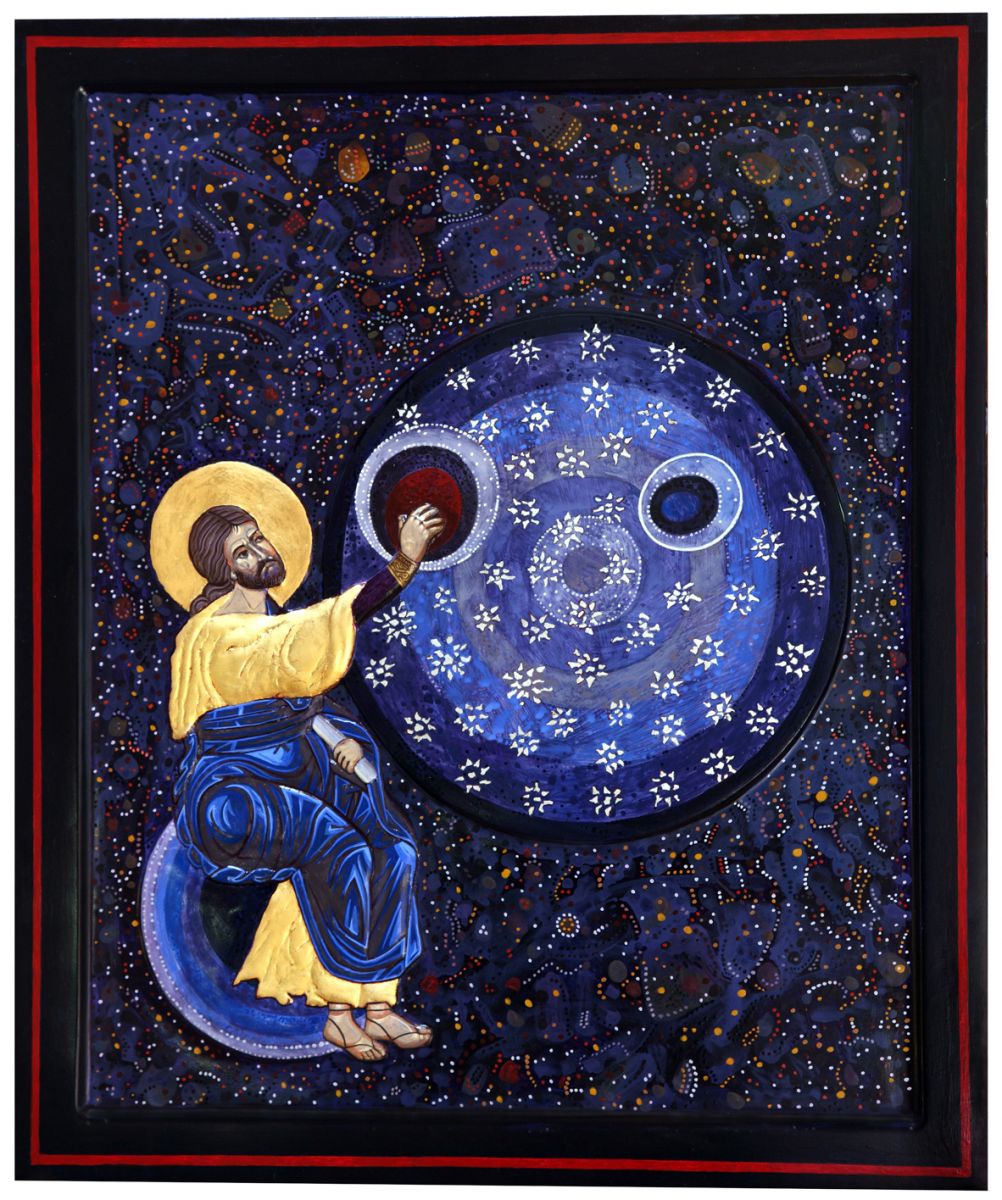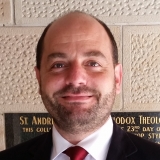- Home
- About us
- Students
- Courses
- Research
- Library
- News & Events
- Gallery
- Contact
- Our Blog
Latest News

The Power of Words & Music

by Mr Basilios Psilacos (Associate Lecturer in Worship and Liturgy, and Instructor in Byzantine Ecclesiastical Music)
A Voice That Moves the Heart
Have you ever noticed how a simple melody can change your whole mood? Or how the right words—spoken with love, hope, or truth—can linger in your heart for days?
Words and music have been shaping us since before we could speak. Babies recognise the sound of their mother’s voice before they see her face. We sing lullabies to soothe, anthems to unite, and prayers to lift our souls. Somewhere deep inside, we know this: words and music are not just beautiful—they are powerful.
The Bible begins with this truth. “And God said, ‘Let there be light,’ and there was light.”¹ Not a hammer, not a gesture—but a voice. Creation was sung into being, so to speak, by a speaking God. And in the Gospel of John, we hear that “In the beginning was the Word… and the Word was God.”² God’s voice doesn’t just describe reality. It creates it.
Throughout Christian history, people have sensed this mystery. St. Basil the Great once said that music helps carry divine truth into our hearts like medicine mixed with honey—sweet and healing at the same time.³ St. Augustine wept at the power of hymns, saying that when he heard the Church sing, “the voices flowed into my ears, and the truth distilled into my heart… tears ran down, and I was happy in my tears.”⁴
Even modern neuroscience is catching up to what the ancients knew. Music activates emotional, linguistic, and memory centres in the brain simultaneously, producing effects far beyond what speech alone can do.⁵ Spoken words, too, carry energy—healing or harmful, depending on how they are used.
The Healing Power of Music and Words
As beautiful as they are, music and words are more than just decoration for the soul—they’re medicine. Modern science now shows what people of faith have always intuited: music and speech have the power to heal.
Brain scans reveal that music lights up areas connected to memory, emotion, and even physical movement. This is why stroke patients sometimes sing before they can speak again. It’s why a familiar hymn can bring tears to someone with dementia, even when they’ve forgotten everything else.
In hospitals, therapists use music to calm anxiety, relieve pain, and regulate breathing in premature babies.⁶ Soft, spoken words—offered with care—can lower blood pressure and stress levels. Harsh or angry tones do the opposite.
Even the structure of water may respond to language and intention. Japanese researcher Dr. Masaru Emoto photographed water crystals that changed form depending on the words spoken to them—beautiful patterns from loving words, chaotic ones from hatred.⁷ In a simple “Rice Experiment,” jars of rice exposed to words of blessing, neglect, or criticism showed dramatically different outcomes.⁸ Though debated scientifically, these experiments offer poetic insight into what Scripture has long taught: “Death and life are in the power of the tongue” (Proverbs 18:21).
Echoes of the Church: A Voice from the Heart of Worship
The early Christians didn’t need lab reports to know this. They understood the soul was moved by what the ears received. That’s why they sang their prayers—not to perform, but to unite.
St. Basil the Great wrote that melodies help divine teaching “sink more deeply into the soul,” softening us to receive it.³ Music, for him, was the bridge between beauty and truth.
St. John Chrysostom said that when the Church sings, it becomes one voice: “As the lyre produces one sound from many strings, so too does the Church create one voice from many believers.”⁹
In the Orthodox tradition, nearly every word of the liturgy is chanted—not for ornament, but for elevation. When words are wrapped in melody, they rise higher, reach deeper, and remain longer.
A Quiet Invitation
In a world filled with noise, it’s easy to forget that not all sound is the same. Some words build; others tear down. Some music lifts the soul; others leave us restless. But what we choose to hear—and what we choose to say or sing—can make all the difference.
So perhaps today is a chance to pause…
To listen again to that song that brings peace.
To speak a kind word instead of staying silent.
To open the Psalms and read aloud, even just a line.
To hum a hymn not because we have to, but because we can.
These small choices—gentle words, healing songs, prayerful pauses—are how we participate in the harmony of God’s creation. They’re how we tune our hearts to the voice of the One who spoke light into being.
As the psalmist says, “Let everything that has breath praise the Lord” (Psalm 150:6). Not just with thoughts. But with voices. With music. With words that give life.
Footnotes
¹ Genesis 1:3
² John 1:1
³ St. Basil the Great, Homily on the First Psalm, in Nicene and Post-Nicene Fathers, Vol. 8
⁴ St. Augustine, Confessions, Book 9, Chapter 6
⁵ Oliver Sacks, Musicophilia: Tales of Music and the Brain (Knopf, 2007)
⁶ Cleveland Clinic, “Music Therapy: Types & Benefits”, Cleveland Clinic Health Library (August 1, 2023). Available at: https://my.clevelandclinic.org/health/treatments/8817-music-therapy.
⁷ Dr. Masaru Emoto, The Hidden Messages in Water (Atria Books, 2005)
⁸ The Rice Experiment – https://www.kindnessevolution.com/the-rice-experiment
⁹ St. John Chrysostom, paraphrased from Homily on Psalm 41 (42)



.png)